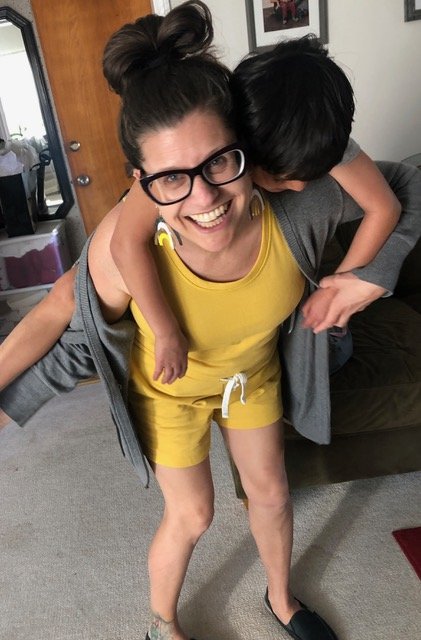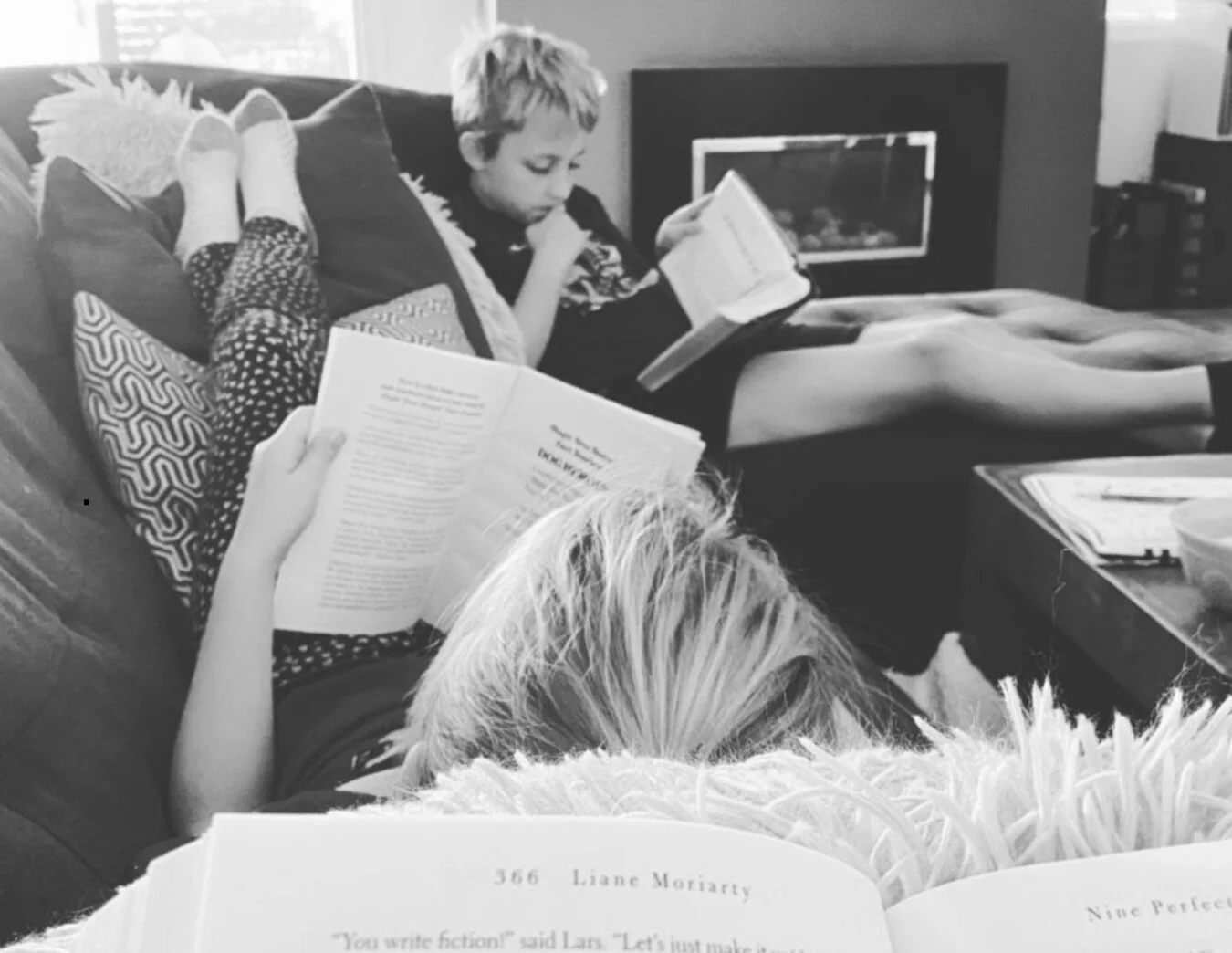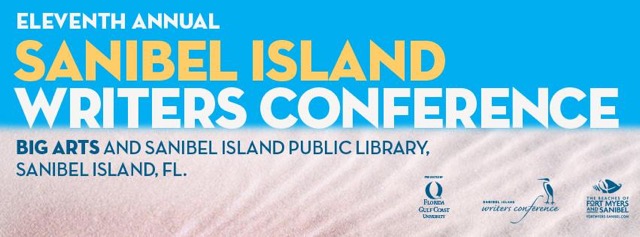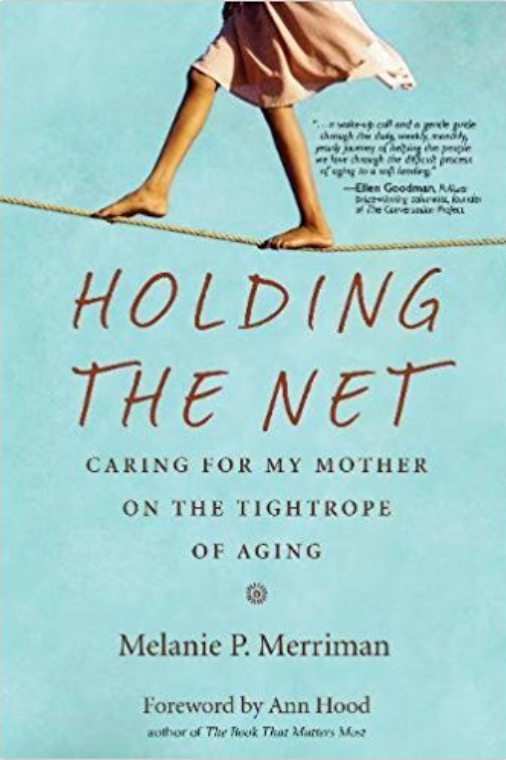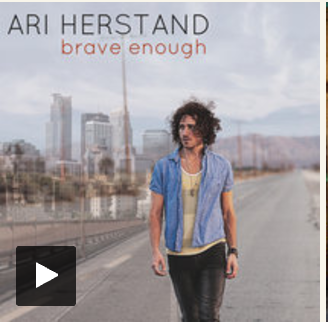Show Notes Episode 147: How to Write a Story about Abuse Without Using the Word
/Today on our show, we bring you a story by Sally Quon called Finding Home.
Sally’s story is an exercise in restraint. Andrea tried a little experiment with Sally’s submission in order to make the story more powerful. She asked Sally to cut all seven mentions of the word, abuse. Andrea learned of this technique while taking a course with Dan Wakefield who assigned the book Name All the Animals by Alison Smith. The book is about grief and yet, the word grief is mentioned only once. Listen and learn why this method is so effective.
Sally Quon lives in the Okanagan. She has been shortlisted for Vallum Magazine’s Chapbook Prize and is an associate member of the League of Canadian Poets. Her personal blog, https://featherstone-creative.com is where she posts her back-country adventures and photos. She has been published in Chicken Soup for the Soul, Big-Stories About Life in a Plus Size Body, and Writing For Life. Her first collection of poetry, Beauty Born of Pain, is due to be released in 2023. You can find her at the following places: FaceBook: Sally Quon, Instagram: @sallyquon, Twitter: @QuonSally
Writing Class Radio is hosted by Allison Langer and Andrea Askowitz. Audio production by Matt Cundill, Evan Surminski and Aiden Glassey at the Sound Off Media Company. Theme music is by Emia.
There’s more writing class on our website including stories we study, editing resources, video classes, writing retreats, and live online classes. Join our writing community by following us on Patreon.
For $35/month you can join our First Draft weekly writers groups. You have the option to join Allison, Tuesdays 12-1 ET and/or Zorina Frey Wednesdays 7-8pm ET. You’ll write to a prompt and share what you wrote. First session is free. Click First Draft for Zoom link. We also added a new tips clinic every second Saturday. Click Tips Clinic to register.
Join the community that comes together for instruction, an excuse to write, and most importantly, the support from other writers. To learn more, go to www.patreon.com/writingclassradio.
A new episode will drop every other WEDNESDAY.
If you would like a transcript of the episode read below:
Andrea Askowitz 00:00:07
I'm Andrea Askowitz
Allison Langer 00:00:09
I'm Allison Langer, and this is Writing Class Radio. You'll hear true personal stories and learn how to write your own stories. Together, we produce this podcast, which is equal parts heart and art. By heart, we mean the truth in a story, and by art, we mean the craft of writing. No matter what's going on in our lives, writing Class is where we tell the truth. It's where we work out our sheep. There's no place in the world like Writing Class, and we want to bring you in.
Andrea Askowitz 00:00:38
Today on our show, we bring you a story by Sally Quon. Her story is an exercise in restraint. Does that make any sense?
Allison Langer 00:00:48
I think so. She had to restrain herself from beating us over the head when we cut all her abuse.
Andrea Askowitz 00:00:53
Okay, so what we did was we had her take out the word abuse, and it's a great example now of trusting the reader. And that's all we'll say about it before we hear it. Sally's story is called Finding Home. Sally Quon lives in the Okanagan. What's that?
Allison Langer 00:01:12
Okanagan.
Andrea Askowitz 00:01:13
Sally Quon lives in the Okanagan.
Allison Langer 00:01:16
I think it's a valley. Okanagan valley.
Andrea Askowitz 00:01:18
O'conaghan.
Allison Langer 00:01:19
Maybe we should look that up before we sound like Oakland.
Andrea Askowitz 00:01:23
She lives in the Okanagan.
Allison Langer 00:01:26
It's a region, the Okanagan, also known as the Okanagan Valley.
Andrea Askowitz 00:01:31
How do you know you're saying it right?
Allison Langer 00:01:32
Well, I don't know. I mean, I'm looking on Wikipedia.
Andrea Askowitz 00:01:35
How do you know it's not O'connogan?
Allison Langer 00:01:36
Because that sounds Scottish.
Andrea Askowitz 00:01:39
Okay, I don't know.
Allison Langer 00:01:41
She lives in Canada. Up there, you know.
Andrea Askowitz 00:01:45
Canada. Okay. She also lives in the Okanagan. She has been shortlisted for Fallon Magazine's Chapel Prize and is an associate member of the League of Canadian Poets. Her personal blog, Featherstone Creative.com, is where she posts her backcountry adventures and photos. She has been published in Chicken Soup for the Soul, big stories about life in a plus sized body, and writing for life. Her first collection of poetry, Beauty Born of Pain, is due to be released in 2023. Yeah, good for her. We'll be back with Sally's story after the break.
Allison Langer 00:02:29
We're back. I'm Allison Langer, and this is Writing Class Radio. Here's sally Quon reading her story, finding home.
Sally Quon (Reader) 00:02:40
A year ago, my children and I left our home with a bag of clothes, one ancient laptop, and my camera. My daughter chose to stay in Calgary, moving in with friends and starting her own life. My 19 year old son and I got into my truck and headed west. You'd think after 25 years in a bad marriage, I would have had an escape plan, some idea of where I wanted to go or what I wanted to do. I did not. You'd think there would have been daydreams about this moment? There were not. The truth is, I never expected to live this long. My husband's anger could erupt at any moment. It might be months or even years between blows, but you could never predict when it might happen, and each time it did was worse than the time before. I should have run the first time he hit me. We weren't married then. He was jealous. I danced with someone else at the bar the night before. I tried to tell him it wasn't a big deal. Not a big deal, he said, not a big deal. Before I knew what was happening, he flew at me and punched me in the head. It hurt. It also filled me with confusion and adrenaline. I was dizzy and shaking all over. The fear didn't come until later. He never apologized or asked for my forgiveness. His lack of remorse led me to believe he didn't mean to do it and was ashamed to mention it. I couldn't have been more wrong. It didn't happen again. For a long time before we met, I was a social person. I lived on Vancouver Island. I spent days with friends at the beach. I worked as a bartender in a fun and lively pub. I wrote poetry and short stories. I read the Tarot. I had an impressive collection of books and music. My mother once described me as a hippie gypsy witch. She wasn't wrong. I was in love with life. It's difficult to describe how I let the relationship go as long as it did. He told me there was no place I'd go where he wouldn't find me. I believed him. As soon as we were married, he stopped working, claiming depression. I was left to work two, sometimes three jobs to support us. In desperation, we moved from Vancouver Island to Calgary, his hometown, thinking a change of scenery might shake him up enough to pull his weight in her marriage. Again, I was wrong. The night I told him I was pregnant with our daughter, he beat me to the ground and began kicking me in the stomach until I thought for sure I would lose the baby. I managed to scramble to the door and run. He chased me through the neighborhood and I hid in the shadows, trying desperately to control my sobs so he wouldn't find me. I had nowhere to go. Eventually, I snuck back to our apartment building and huddled beneath the stairs until a neighbor found me and took me in. I wept and worried, not knowing where to turn. I almost got away that time, but he showed up at my workplace and convinced me I would never make it as a single mother. He told me if I left, I would never get custody. These were the chains that held me in place. When the baby was born, he became a different man. So much love and tenderness. But his refusal to work continued beyond the birth of our son. Two and a half years later, I was working as a hot shot courier, delivering supplies to construction sites during the day, a server in a casino in the evening, and a newspaper delivery woman at night. Still, we were barely getting by. I was getting little to no sleep and eating poorly. The day I crossed the center line and almost caused a head on collision was the day I knew something had to change. I asked the CEO of the distribution company where I delivered newspapers for a promotion. He gave me a three month trial period. Three months turned into 15 years. Over the years, the three of us lived our lives trying not to stumble over an invisible tripwire and blaming ourselves when one of us did. No one was safe from him. He seemed to delight in making the kids cry. By the time I left, I'd lost the will to live, committing a slow form of suicide by ignoring my health and gorging on chocolate and potato chips. I gained so much weight, I couldn't stand to look at myself in the mirror. Every piece of clothing I owned was secondhand and covered in newsprint stains. But what did it matter? I didn't do anything except work. I was diagnosed with congestive heart failure, vascular disease, type two diabetes AFib, and morbid obesity. All of that tangled into one barely mobile disaster. That was me. Yet there must have been some spark of defiance left, some instinct capable of finding its way through the mire of hopelessness and self loathing. The final battle came out of the blue. I went to bed fully closed because I felt less vulnerable than I did when I was naked. The room was dark, but my eyes were wide open, watching, listening for footsteps in the hall. On this morning, everything seemed normal. We were having coffee together when he asked me to pull a small wire through a hole in the remote. Because he couldn't quite manage. He handed it to me with my swollen, arthritic fingers. I couldn't do it either. I handed it back to him. Fat cow. He snarled. Worthless cunt. I stood up to leave the room, but as I was walking away, he picked up a heavy wall charger and threw it at my head, striking me just below the temple. Stunned and bloodied, I turned around, but he was already on top of me. Swinging, I dropped. He kicked me in the ribs repeatedly, grabbed me by the hair, flipping me over so he could straddle me and continue his assault on my face and head. I had learned years earlier not to fight back. It ended sooner when I just let it happen. Resistance only fuelled the rage. Eventually, he moved off. I was bleeding from the head, had several bruised ribs, a black eye and lost two teeth. I picked myself up off the ground where he left me and walked out the door. It should have been a joyous thing, my new found freedom. But that's not the way I remember it. What I remember about those early days is the fear. Fear of being followed and found. But more than that the fear of what lay ahead. How would we live? Where would we go? Who would hire me? I had no education. I was overweight with limited mobility, and now I was missing teeth. It didn't matter that I had been the breadwinner running a distribution company. That was a one shot lucky break. I couldn't count on that kind of luck happening again. Sleeping at night was unfamiliar to me. I would wake certain. I heard him yelling at me. His voice was a constant echo in my head, telling me how worthless I was, how I'd never survive without him. I couldn't talk to my son about how I felt. I needed him to believe that I was okay, that I had the strength to follow through. I know he worried I would change my mind and return. Six days after leaving Calgary, and 25 years after the nightmare began, I returned to Vancouver Island. I stepped onto the beach I never thought I'd see again. The beach where once upon a time, life was full of possibility. I was young and carefree, full of life and plans for the future all at once. In that moment, I knew I was being given a second chance. I saw myself on that beach at the age of 20, and I remembered who I was.
Andrea Askowitz 00:09:49
I'm in love with this story. It's so good.
Allison Langer 00:09:53
Oh, my God, it's so sad. You know, we've read it a bunch of times and worked on it, and all of a sudden hearing it with her voice just made me wonder, what the fuck is wrong with people? You know, I just felt for her and I I know we're not supposed to talk about the actual content of the story that much, but of course, we always do. Yeah, but the writing was so strong.
Andrea Askowitz 00:10:16
What's so striking to me is that this woman is describing an abusive relationship and getting away from it finally after 25 years, and, like, getting a second chance and finding herself again. But what she did was she pared out every mention of abuse or abusive relationship. And it's not in here one time, those words, but in the original draft. And I just want to say this because we asked her to take them out, the original draft, she said abuse or abusive seven times. And without it, if you say the word abuse or abusive, it conjures up so many things, and it's sort of like using a cliche. It becomes cliche. It's not exactly a diagnosis, but I've noticed this when people comment on other people and they give them a diagnosis, if it's not a real diagnosis, then it just brings up all these other things in the mind of the reader. It's just not necessary. And I feel like she described for me 100% what it feels like to be in an abusive relationship. Just by showing exactly and telling. It's not just showing. She didn't just only show, but she showed and told what she went through, but without using that word.
Allison Langer 00:11:38
When we talked about this prior to the show, and I was like, we love to try to find a lesson in every story. And I wasn't sure I understood exactly what you were saying by taking out the word and not using it would have more power. But now that I'm hearing you say this, what I think I'm getting is that when somebody says a word in your mind, you have your own ideas.
Andrea Askowitz 00:12:00
About what that word means.
Allison Langer 00:12:02
Then you sort of get sidetracked or you assume or you're waiting for the same old story. But what happens when that is out is that now I'm just listening to her story.
Andrea Askowitz 00:12:13
Right. Her specific details are what matters, not this general sense of what abuse means. Yeah.
Allison Langer 00:12:22
It has a lot more power.
Andrea Askowitz 00:12:23
Yeah. I remember I took a class with Dan Wakefield, like, ten years ago, and I don't even know if he's still teaching anymore. And he had us read a book called Name All the Animals, and the book was about grief, but the word grief was not in there one time in a whole memoir, but we got this narrator's experience of grief, and that has stuck with me. So words like abuse or narcissist or there's just the labels. Labels that are overdone, take away from the specifics of the actual situation. Yeah.
Allison Langer 00:13:02
Change the word.
Andrea Askowitz 00:13:04
Exactly. So, Sally Quon, well done with paring out that one specific word, abuse. Okay, thanks for letting me talk about that. There's so many other things in here that I thought were just gorgeous. So one of them was her honesty about herself. She shows what she was like and what she looked like. I mean, she talks about gaining weight, and then when she gets beat up that last time and she loses teeth, she shows us a few paragraphs later, like, now who would hire me now I'm overweight and now I'm missing teeth. She's not pussyfooting around on what the hell she's been through and what she's afraid of now going forward, based on what she looks like. And I thought that was so honest, hard to do. It might not be politically correct. I don't care. It's vivid. It's gorgeous. Yeah.
Allison Langer 00:14:02
And I think she tells us just enough about her kids. We know she has them and they're there. But this is not about her kids or the relationship with her kids, the husband's related. It's really about her finding herself again after all of this. So she shows us the four, and then she shows us what she goes through, and then we get to the end where she finds herself again. So actually the way this is structured is she goes right into the heat of the moment, right? So that the hottest part of her story. And so we're completely drawn in that she's in about. She leaves her house because of the moment she's leaving. Exactly. And then she goes back a little bit in time, and she tells us blah, blah, blah about her marriage.
Andrea Askowitz 00:14:49
She was in a bad marriage for 25 years. There was this one part I'm sorry. I'm jumping all over you. Sorry. I'm excited. There was this one moment where she said, I should have dreamed of what this moment would look like, but I never expected to live this long. And then this time, a second later, she talks about her husband's anger erupting, and I was like, Fuck. She thought he could have killed her. Yeah, I didn't get that before.
Allison Langer 00:15:14
And, you know, this is always my favorite structure, and we talk about this all the time. You start with the moment. You go back a little bit in time, and then you catch back up and you keep moving forward. So she even tells us that before they met, she was a social person. She lived on Vancouver Island, blah, blah, blah.
Andrea Askowitz 00:15:27
She tells us all the gypsy, which her mom thought of her. We get total voice. And also I get this image of this joyful, happy go lucky, just go with the flow, fun woman, and then that shit's beaten out of her. Yeah.
Allison Langer 00:15:47
Then she goes right back into the moment, right back to the marriage, the kid, the whole thing. And we see everything, the job, the whole thing, until we get to the end. And so she's describing a situation, but, yeah, you're holding up your finger.
Andrea Askowitz 00:16:00
There was one more moment that I thought before we get back to the end, where she says, these were the chains that held me in place. And I thought that was an ideal, perfect way to describe the cycle of abuse without saying I was caught in an abusive cycle. He said he convinced me that I would never make it. He told me that I would never get custody. These were the chains that kept me perfect.
Allison Langer 00:16:32
So we talk about cursing in a story. I can barely say a sentence without cursing, which is always the funniest part of me. Like subbing high school in the library. The library lady on the pickleball court.
Andrea Askowitz 00:16:44
Oh, no.
Allison Langer 00:16:45
But when she says she uses dialogue to say fat cow, he's snarled, worthless hunt. Like, what?
Andrea Askowitz 00:16:55
Fat cow? He's snarled worthless hunt. Yeah. Okay.
Allison Langer 00:16:59
So, I mean, what were you thinking? He said, she said that whole thing.
Andrea Askowitz 00:17:03
In that case, I don't think we sorry. It's too late. It's not terrible. I don't mind it. But fat cow and worthless hunt are snarly enough. Yeah.
Allison Langer 00:17:13
So you don't have to say he's snarled, but that goes back to a stylistic thing. I've seen that in books, read books now, and I'm like, oh, we don't like that. But obviously this is published, so somebody does. So you can listen to us or you can listen to yourself. Right, exactly. But I just really think it really expressed so much, and I swear, I was like, what is wrong with us? When do we go so wrong? How do we get to a point where we're calling our love, our partner, this person we married, a worthless hunt god, no wonder the world is full of hate.
Andrea Askowitz 00:17:47
Well, all we know about the husband is that he was depressed. I think in a longer story, it would be really interesting to build out that character. I mean, in this case, I hate his guts. But in a longer piece, I wonder what he was really like. I mean, there were moments, obviously, when he was not beating her up and calling her a fat cow and a worthless cunt. So he went through whatever he went through. I wonder if she's writing a memoir. I want to read it.
Allison Langer 00:18:15
I know same, because it does say she's writing like a collection of poetry. So that's not the same.
Andrea Askowitz 00:18:22
No, I want to read her memoir.
Allison Langer 00:18:24
Yeah, me too. And I know that sometimes people are hesitant to write a memoir about this because it does happen a lot to a lot of people. But I really think each individual's personal story is important. It's important to write it. It's important to read other people's stories of this kind of stuff. I really do think that it's important. So, Sally Qu0n, get writing.
Andrea Askowitz 00:18:44
Sally Quon I think it would be a really interesting exercise and a really good, wonderful book to write this whole book without using the word abuse or abusive. Same as name all the animals.
Allison Langer 00:18:56
Didn't use the word and rename all the animals. I'm going to read Name all the Animals.
Andrea Askowitz 00:19:00
Yeah, it didn't use the word grief. Name all the animals by Alison Smith.
Allison Langer 00:19:05
I loved her voice. I really love that our narrators don't mind recording for us because I think it's so important to get the voice of the narrator. Love it.
Andrea Askowitz 00:19:14
For more Sally, go to Featherstonecreative.com where you'll find links to her social media. We'll also have links to Sally in our show notes. First, I want to say, though, before we go, Sally Quon, thank you for writing this story. The story is badass, bold and beautiful.
Allison Langer 00:19:37
Yeah, very, very Brady. Class radio is hosted by me, Allison.
Andrea Askowitz 00:19:49
Langer and me, Andrea Askowitz.
Allison Langer 00:19:52
Audio production by Matt Cundill, Evan Surminski and Aidan Blacksey at the Sound Off Media company. The music is by Emmy. There's more writing class on our website, writingclassradio.com, including stories we study, editing resources, video classes, writing retreats, and live online classes. Join our writing community by following us on Patreon. For $35 a month, you can join our first draft weekly writers group. You have the option to join me, Allison on Tuesdays, twelve to one Eastern time, and Zarina Fry Wednesdays, seven to 08:00 p.m.. Eastern time. You'll write to a prompt and share what you wrote. If you're looking to take your writing to the next level for $145 a month, you'll get first draft and second draft in second draft. Each week, three people bring a second draft for feedback. And we added one more class, which at the moment is whole, but it's a memoir writing class for all those people. Sally Quon. Sally Quon who want to write their memoir. It's a six month commitment, and we need every Monday night from eight to 09:00 p.m. Eastern time. If you're interested, shoot us an email so you can get on the list.
Andrea Askowitz 00:21:02
For the next one info@writingclassradio.com. And also, not to be ridiculous, but we added another class. Second Saturdays of every month, we do a Tips clinic and it's totally free and everyone's invited. It's noon to one Eastern second Saturday. Tips writing. Also, if you want to get in on that email info@writingclassradio.com and just put Tips Clinic in the subject line, join.
Allison Langer 00:21:30
The community that comes together for instruction, an excuse to write, and most importantly, the support from other writers. To learn more, go to patreon.com slash writingplusradio a new episode will drop every other Wednesday.
Andrea Askowitz 00:21:44
There's no better way to understand ourselves and each other than by writing and sharing our stories. Everyone has a story.
Allison Langer 00:21:54
What's yours?
Tara Sands (Voiceover) 00:21:54
Produced and distributed by the the Soundoff Media Company there's more writing class on our radio.
Andrea Askowitz 00:22:06
There's more writing class on our radio.
Allison Langer 00:22:09
Sorry.
Andrea Askowitz 00:22:10
There's more radio on our writing class.


